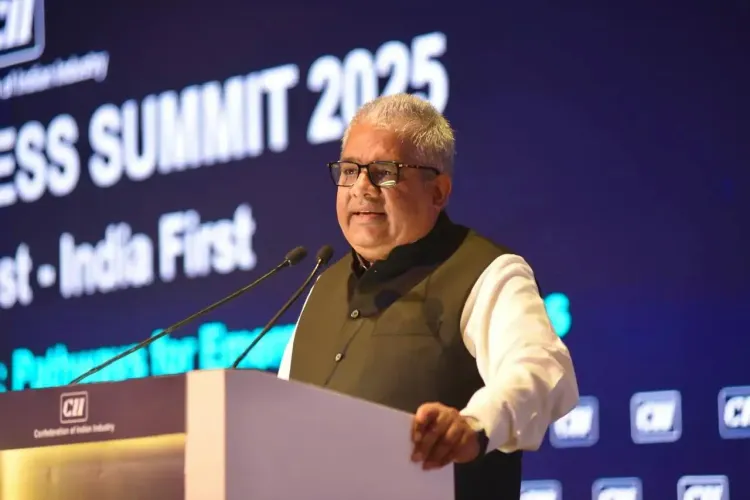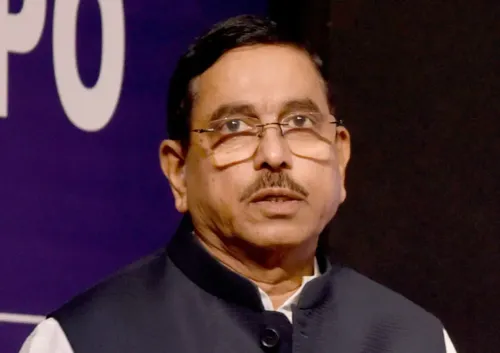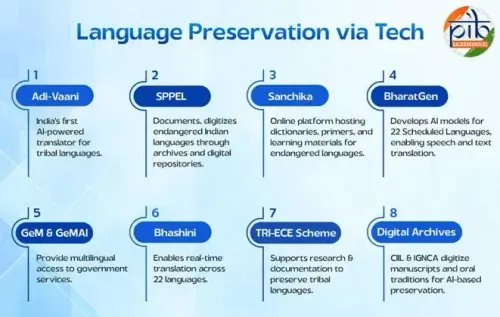Is India the Most Trusted Global Partner for a Sustainable Future?

Synopsis
Key Takeaways
- India's transition to a circular economy aims to reduce waste.
- The government has established Extended Producer Responsibility guidelines.
- Investments in recycling have reached Rs 10,000 crore.
- The circular economy could generate 10 million jobs by 2050.
- Mission LiFE promotes sustainable lifestyles.
New Delhi, May 30 (NationPress) Amid global geopolitical challenges, India stands out as the most trusted international ally, a fact attributed to its political stability, visionary leadership, cultural values, and a steadfast commitment to a sustainable future, emphasized Union Minister for Environment, Forest and Climate Change, Bhupender Yadav.
While speaking at the CII ‘Annual Business Summit 2025’ in the capital, the minister detailed India's climate policy framework, highlighting three critical drivers.
“India is evolving from a linear economy to a circular economy, aiming to minimize waste and maximize resource efficiency. The government has implemented Extended Producer Responsibility (EPR) guidelines across various sectors, such as tyres, batteries, plastics, and e-waste, to encourage recycling and sustainable consumption,” he informed the audience.
Between 2022 and 2024, the recycling sector garnered investments amounting to Rs 10,000 crore, showcasing the industry's dedication to sustainable practices.
The circular economy sector is projected to reach $2 trillion by 2050, potentially generating around 10 million jobs.
Under Prime Minister Narendra Modi's leadership, India has initiated Mission LiFE (Lifestyle for Environment) and the nationwide campaign 'Ek Ped Maa Ke Naam', a community-centric initiative focused on environmental preservation.
“The introduction of Green Credit Rules under Mission LiFE encourages voluntary environmental conservation efforts, promoting a culture of sustainability,” said the minister.
India acknowledges the threats posed by climate change and is dedicated to enhancing resilience through adaptive strategies. The government has published a draft framework for the climate finance taxonomy, clarifying methods for categorizing activities aimed at adaptation and mitigation.
Furthermore, the development of the initial National Adaptation Plan, to be submitted to the United Nations Framework Convention on Climate Change (UNFCCC), aims to boost adaptive capacity, fortify knowledge systems, and mitigate climate risks, he noted.
Yadav called on industry leaders to take an active role in constructing a self-sufficient circular economy.
He encouraged them to join the Resource Efficiency and Circular Economy Industry Coalition, established under India’s G20 Presidency, as a collaborative platform for knowledge exchange and sustainable practices.









